From a Marxist perspective, the China-US Cold War is inevitable
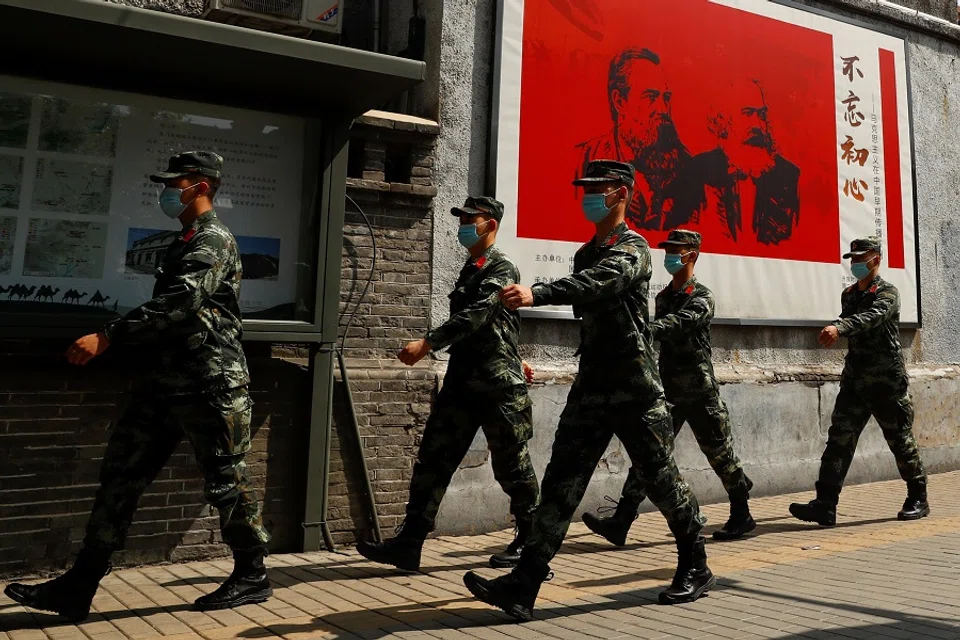
Analysing the new Cold War between China and the US without considering the Marxist perspective would be to miss the point. For from a Marxist perspective, the new Cold War, or even a hot war between both countries, is inherently logical.
The national interests of capitalist and communist countries are opposed to each other, and opposing ideologies are what lie beneath the facade of national interests.
The premise of The Communist Manifesto is that capitalism must die. It says in Chapter II that Communist theory can be summed up in the single sentence "Abolition of private property". It goes on to say in Chapter IV, "The Communists disdain to conceal their views and aims. They openly declare that their ends can be attained only by the forcible overthrow of all existing social conditions. Let the ruling classes tremble at a Communistic revolution. The proletarians have nothing to lose but their chains. They have a world to win."
The rhetoric found in The Communist Manifesto affirms that capitalism is communism's enemy - communism and capitalism can never coexist and communism can only achieve its goal by eliminating capitalism. It is thus natural that capitalism, being unwilling to resign to its fate, will fight against communism. The national interests of capitalist and communist countries are opposed to each other, and opposing ideologies are what lie beneath the facade of national interests.
Marxist lens clarifies the new Cold War
Under the banner of Marxism, communist parties have been fighting for the full realisation of communism since their establishment. The Communist Party of the Soviet Union established the Communist International (Comintern) to achieve this goal. The Chinese Communist Party (CCP) was established through direct assistance from the Comintern. In the early stages of the party's founding, the CCP's ultimate goal was the full realisation of communism. The base camp of the CCP during the Kuomintang government period was called the Chinese Soviet Republic.
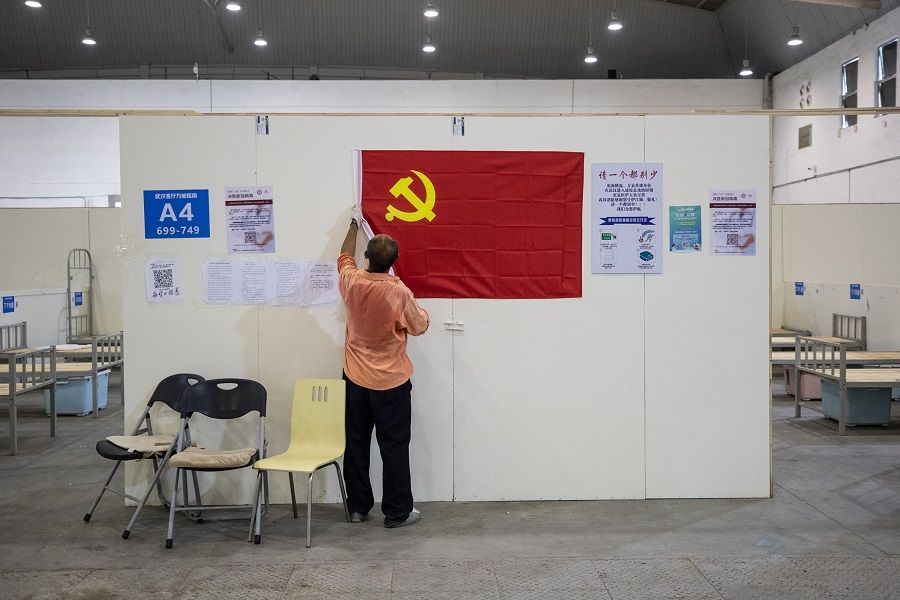
Marxist theory, a Marxist-inspired party, a country led by such a party - these three factors meshed with national interest when implementing policies at home and abroad are sure to bring about conflict with Western capitalist countries represented by the US.
Inevitable clash of ideologies
First, from a Marxist perspective, it was inevitable that the US and the Soviet Union entered a Cold War. While the Soviet Union forged Yalta agreements with the US and other Western countries near the end of World War II (including a Declaration of Liberated Europe, which reiterated that all people had the right "to choose the form of government under which they will live"), the communist mission of the Communist Party of the Soviet Union inevitably resulted in Eastern European countries liberated by the Red Army turning into communist regimes. Seeing that the Soviet Union was not abiding by the Yalta agreements, the UK and the US, which are aligned in terms of ideology, considered these changes a challenge to liberal democratic values. Ideological opposition resulted in political and military confrontation - the US and the Soviet Union became trapped in a vicious cycle of friction and conflict since 1946. With negative effects constantly accumulating, a Cold War finally broke out between both countries.
Although Deng wanted China to keep a low profile, he did not abandon the goal of bringing about the full realisation of communism.
After the CCP amassed national power, China lent its full support to the Soviet Union. Mao Zedong announced that China would join forces with the Soviet Union to fight the US in his famous essay "Farewell, Leighton Stuart!". The Cold War between the two major camps of the East and West was officially in place following the outbreak of the Korean War. China became a participant in the Cold War but it left the Soviet camp because of a conflict between Mao and Nikita Khrushchev. An armed border conflict had even broken out between China and the Soviet Union. That said, Khrushchev and Mao's great ambition of burying capitalism remained unchanged.
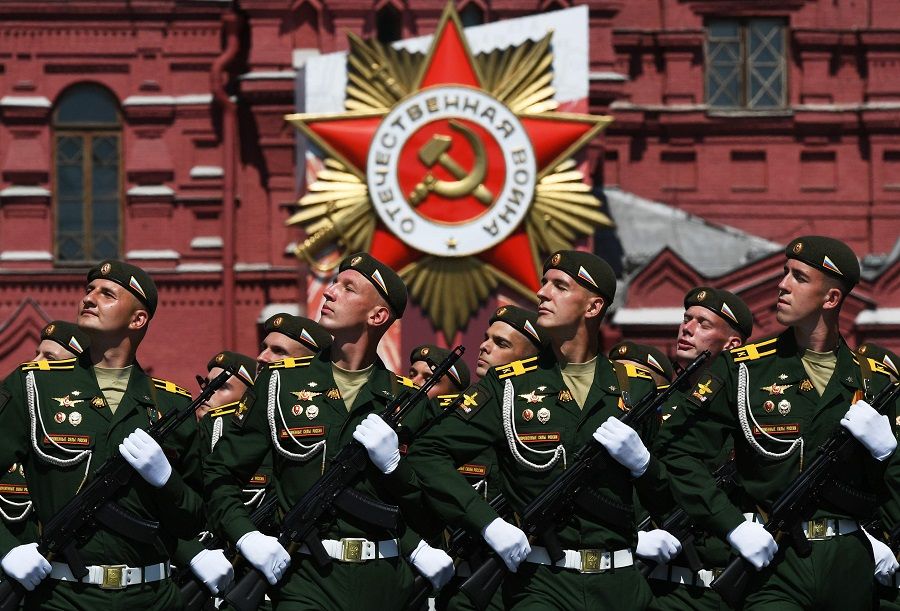
"We will bury you," Soviet First Secretary Nikita Khrushchev reportedly said while addressing Western ambassadors at a reception on 18 November 1956 for visiting general secretary of the Polish Communist Party, Władysław Gomułka. In a published conversation with Chen Boda, Ai Siqi, and other comrades in Hangzhou on 21 December 1965, Mao said, "The next few decades is a precious and important period for the future of the motherland and the fate of humanity! ... Our generation of young people will build our impoverished motherland into a great socialist country and take part in the battle to bury imperialism with our own hands."
That both Khrushchev and Mao wanted to bury capitalism is an inference from communist ideology. Although Mao and Richard Nixon started a new chapter in China-US relations, China did not give up on its communist ideology; while Deng Xiaoping ushered in a new era of China's reform and opening up, he was at the same time a strong advocate of the "Four Cardinal Principles" (i.e. keeping to the socialist road, upholding the dictatorship of the proletariat, upholding the leadership of the Communist Party, and upholding Marxism-Leninism and Mao Zedong thought). Although Deng wanted China to keep a low profile, he did not abandon the goal of bringing about the full realisation of communism. Keeping a low profile could be understood as tactically beating a retreat when China is still relatively weak. Given China's rapid development in the past few decades, it is no surprise that Chinese public opinion has stopped buying the argument for China to stay low and bide its time.
Communist ideology as relevant today for CCP as it was decades ago
Second, from a Marxist perspective, a new Cold War is unavoidable in the new era of "socialism with Chinese characteristics". When China celebrated the 200th birth anniversary of Karl Marx in May 2018 in a high-profile manner, it was showing to the world that it is still a loyal defender of Marxism. In the same way, when the CCP's Political Bureau conducted a group study session on The Communist Manifesto and its present significance on 23 April 2018, it was also reinforcing the fact that the CCP is "a loyal inheritor of the spirit of The Communist Manifesto", as said by President Xi Jinping.
Mao praised American democracy so as to target Chiang Kai-shek's dictatorship and party-state system, and to legitimise the CCP in a bid to seize power. This was what "keeping a low profile" meant in that era.
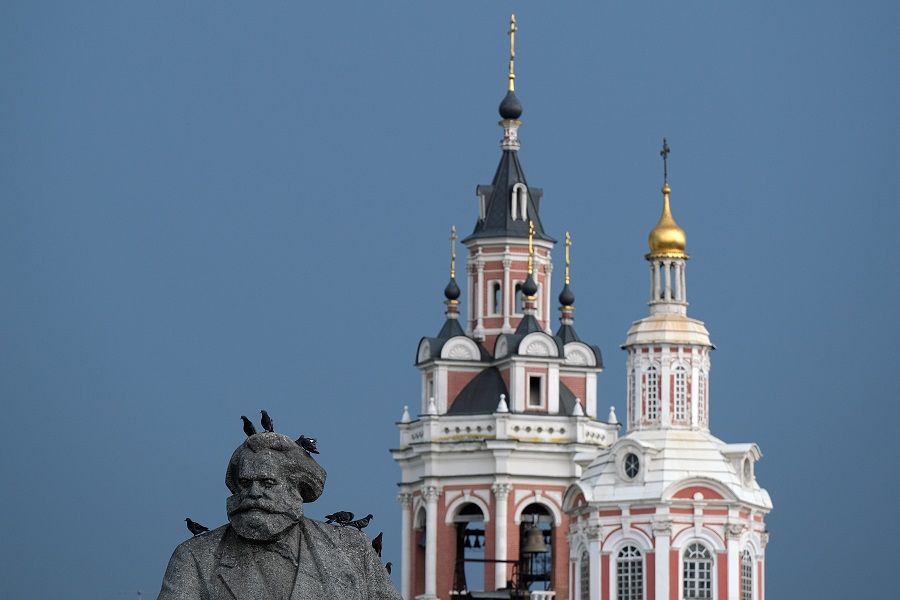
The CCP has always believed in communism since its founding almost a century ago. The intriguing thing is that American elites have always been doubtful about the CCP's communist characteristics. When John S. Service and a few other American diplomats visited Yan'an in the 1940s, they came to the following conclusions: the CCP is not an orthodox communist party; their policies are in fact closer to American values and are vastly dissimilar to the Soviet model. They thus urged the US to "hold the Communists to our side rather than throw them into the arms of Russia" in a telegram sent to the US Department of State on 28 February 1945.
One of the reasons why the Americans have this mistaken impression is that the CCP's media apparatus at that time frequently promoted American freedom and democracy. In a Xinhua Daily article dated 4 July 1943, Mao wrote that the US is the centre of the free world, the protector of democracy, the friend of the people, and the enemy of the dictator. He also said that the US is an eyesore to all feudal and despotic rulers, and the model of a successful society. In actual fact, Mao praised American democracy so as to target Chiang Kai-shek's dictatorship and party-state system, and to legitimise the CCP in a bid to seize power. This was what "keeping a low profile" meant in that era.
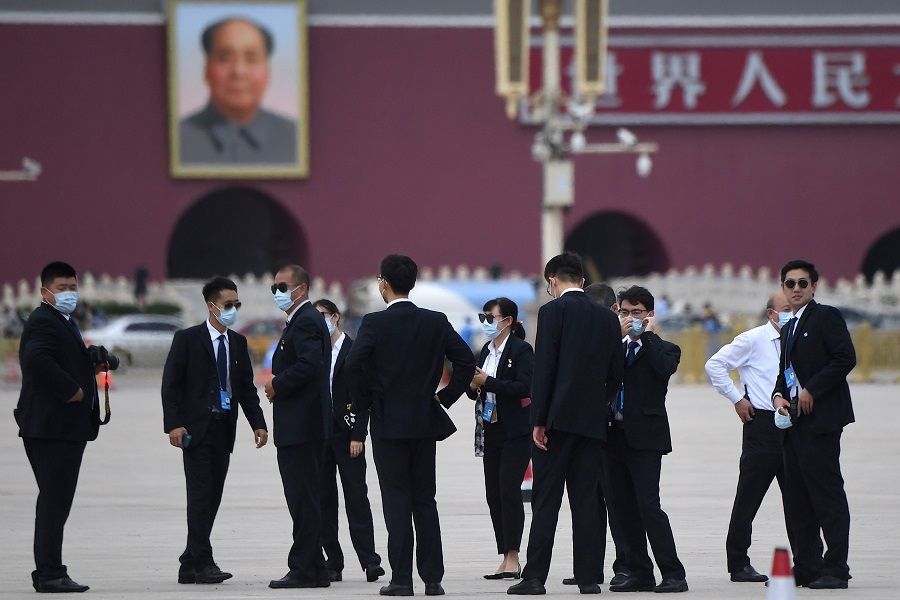
Recently, however, American elites seem to have finally come to their senses. On 24 June 2020, US national security adviser Robert O'Brien said: "As China grew richer and stronger, we believed, the Chinese Communist Party would liberalise to meet the rising democratic aspirations of its people... We could not have been more wrong - and this miscalculation is the greatest failure of American foreign policy since the 1930s." In other words, the Trump administration recognises that American foreign policy has failed due to the US misunderstanding the CCP's ideology. The moment America's bipartisan elite understand the crux of the CCP's communist ideology and believe that China wants to replace the US to become the leader of the international order, a new China-US Cold War becomes inevitable.
Hence, the crux of the new China-US Cold War is a duel between socialism and capitalism.
When the US observes China's domestic and foreign policy through a capitalist lens, all that China does becomes a threat to the US. There are plenty of such examples. According to the "United States Strategic Approach to the People's Republic of China", the US government believes that China poses challenges to its economy, values, and security. Said US Secretary of State Mike Pompeo during a speech at the Nixon Library recently, "If the free world doesn't change - doesn't change, communist China will surely change us." His speech echoes the "two roads, two routes" (两条道路、两条路线) concept professed by Mao, about the struggle between socialism and capitalism within China. Hence, the crux of the new China-US Cold War is a duel between socialism and capitalism.
The inevitability of a new Cold War does not mean that a China-US hot war is also unavoidable. A valuable insight of the Cold War between the US and the Soviet Union is that a hot war did not occur between both countries. It is still too early to determine if the new Cold War would turn into a hot war between China and the US. Reason will ultimately triumph over ideological zealotry. However, it is when a moment of overzealousness cannot be contained, that a hot war becomes inevitable.
